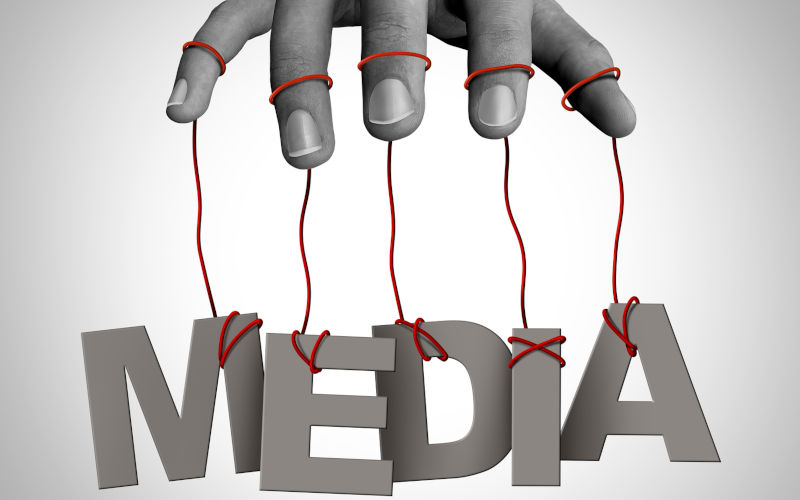Failure to cover: A week of collective omission by the Australian media
October 28, 2025
It’s worth restating at the outset what should be taken as read by everybody: genocides matter a lot.
Genocides are crimes against humanity not only because they are committed “as part of a widespread and systematic attack on a civilian population”, but because they transgress all who bear witness to them. Everyone’s humanity is raped during a genocide. Our humanity is raped simply through the knowledge that we and the perpetrators — whoever they are — belong to the same human family. One of our own did it.
And so the committing of genocide should be of utmost concern to everyone. That includes, of course, journalists. Journalists have a duty to report on a genocide with the seriousness it deserves. Here, I don’t simply mean the duty to report comprehensively and accurately on the genocide itself – the mass killing, the publicly expressed genocidal intent, the use of starvation as a weapon of war, the ethnic cleansing and so on. That is clearly part of the remit of any serious journalist or media organisation. I mean also the duty to report on the issues that surround the act of genocide: its designation as such by expert authorities, the charging of perpetrators by relevant international courts and any associated political and judicial developments.
Much has been said about the way the Western media frames stories about Israel and the genocide in Gaza. An important concomitant to those criticisms are criticisms relating to the relative prominence given by Western media outlets to certain stories about the genocide. That brings me to three recent developments surrounding Israel’s genocide that went — bar one exception — completely ignored by Australia’s mainstream media.
The first was the 17 October ruling by the International Criminal Court rejecting Israel’s appeal to have arrest warrants withdrawn for Benjamin Netanyahu and former defence minister Yoav Gallant. Australia is a signatory to the Rome Statute of the ICC and, as such, is obliged to execute arrest warrants issued by the court. Despite its current unpopularity, Israel is an ally of Australia’s and Netanyahu has visited Australia in his capacity as prime minister of Israel. Anthony Albanese publicly thanked Netanyahu as recently as August, and we continued to transfer fighter jet parts to Israel during the genocide. Despite all this, not a single Australian news outlet covered the ICC’s ruling. By comparison, the decision was reported on by the Times of Israel, Middle East Eye, The National (UAE), The Times of India and TRT World (Turkey).
The second development was Canadian Prime Minister Mark Carney’s 17 October confirmation in an interview with Bloomberg that Canada would arrest Netanyahu should he step foot in the country. In so doing, Carney was reiterating the position earlier put by former Canadian prime minister Justin Trudeau. Comparisons are often made between Australia and Canada as two middle powers with similar-sized economies and historically strong relations with the US. Both are members of the Five Eyes intelligence alliance. Hence, a leader like Carney making such a comment is newsworthy in Australia, not least because it reveals the moral cowardice of our own government in refusing to state explicitly that it would arrest Netanyahu. Despite this, Carney’s comments went almost totally uncovered by the Australia media. A single news report by News.com.au is all that can be found.
The third development was the 20 October release of the UN’s "Gaza Genocide: A collective crime" report, which was authored by the UN Special Rapporteur on the Occupied Palestinian Territories, Francesca Albanese. Unlike the two developments I have already cited, this UN report involves Australia directly. Australia is mentioned six times in the 24-page report (a good half of which is taken up by its 304 citations) as one of 63 “Third States” that have “enabled long-standing systemic violations of international law by Israel” and facilitated the genocide in Gaza through “direct support, material aid, diplomatic protection and, in some cases, active participation”.
The report states that the sanctions applied by Australia and other governments on Israeli ministers Itamar Ben-Gvir and Bezalel Smotrich, by being limited to those two ministers alone, “effectively condone the Israeli state system and structures as a whole”. The report further calls out Australia and other governments for their “transfer of F-35 parts, heavily used in the genocidal destruction of Gaza”. As an official UN report transmitted by the UN secretary-general to the UN General Assembly, and one which directly implicates Australia in the genocide, this is a highly newsworthy report. And yet, at the time of writing, four days after its release, no news of it can be found anywhere in the Australian media.
Now, perhaps Australian news editors would say that the Australian people don’t need to follow the minutiae of the ICC case, only the final rulings. Is that the approach they took during the recent mushroom murder trial at the Latrobe Valley Magistrates’ Court? Or perhaps they’ll argue they don’t have the resources to cover all the developments related to the ICC’s case. Again, see the mushroom trial.
Regarding Carney’s statement, perhaps they’d argue that he was simply reiterating what was already known about Canada’s position, and so it wasn’t newsworthy. Reputable international news agencies disagree. As for the UN’s “Gaza Genocide: A collective crime” report, perhaps the Australian media now views Francesca Albanese as a biased political operative and not a legal scholar and human rights expert fulfilling her UN mandate courageously. If so, they can take comfort knowing they share that view with the genocidal Israeli Government, a government whose lies they have no qualms airing daily in the name of “balance”.
The views expressed in this article may or may not reflect those of Pearls and Irritations.

